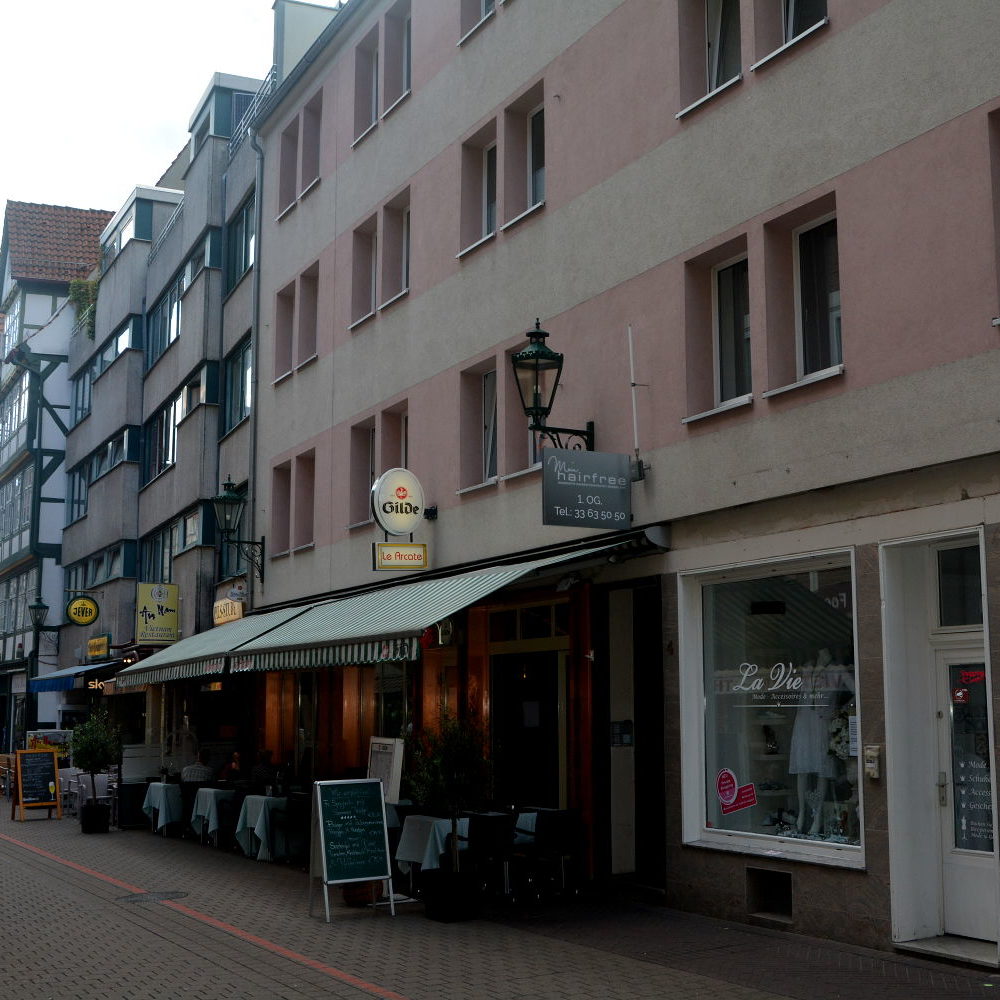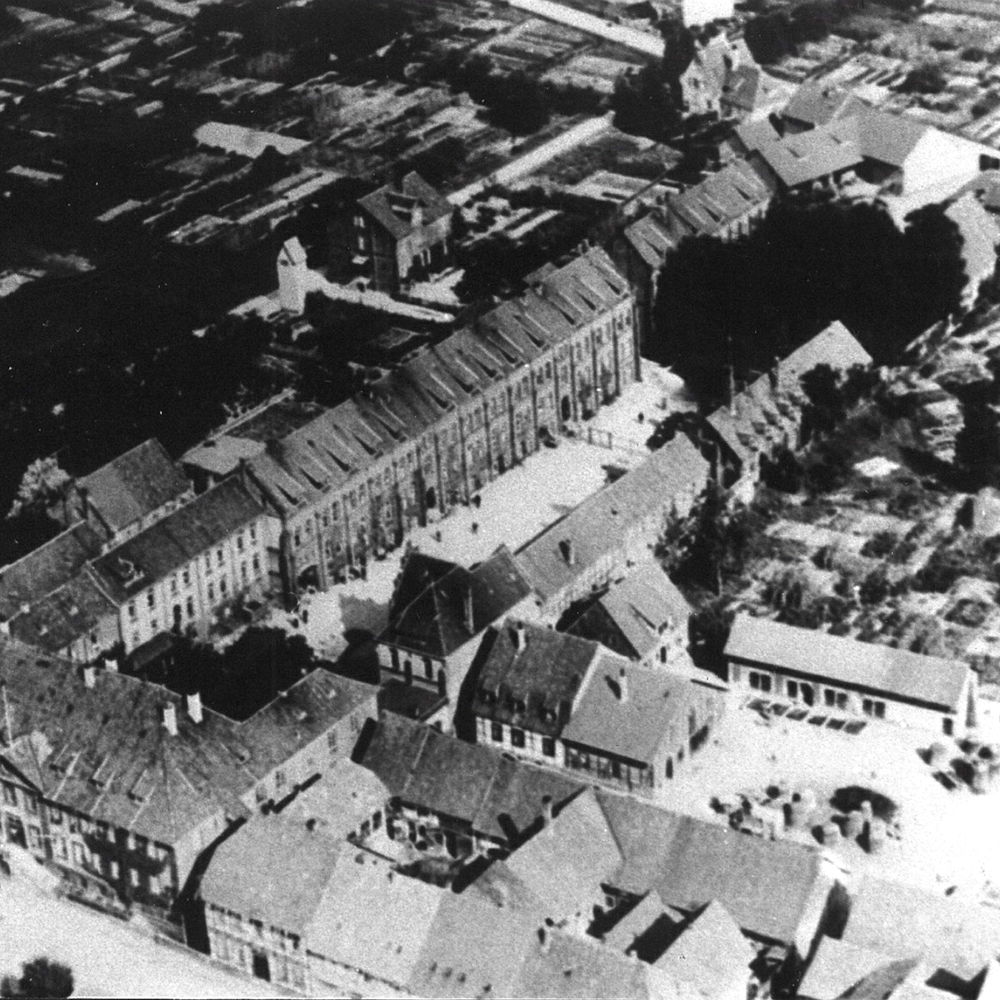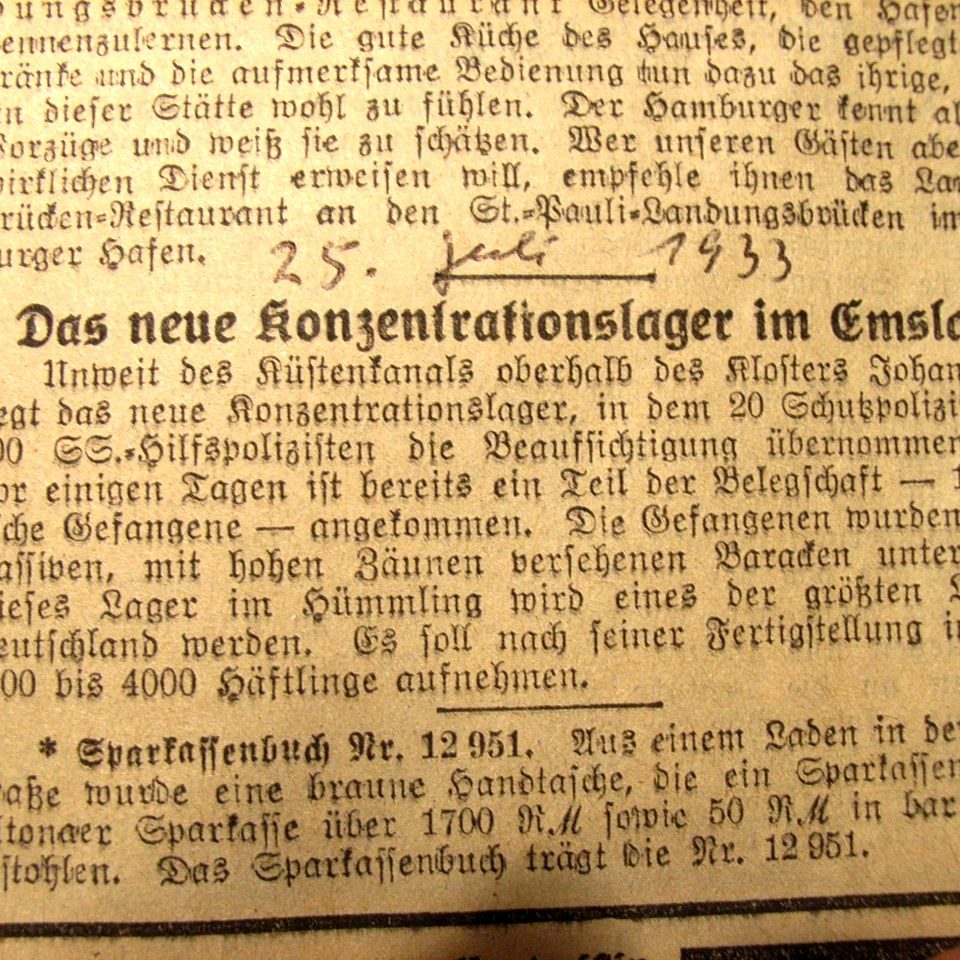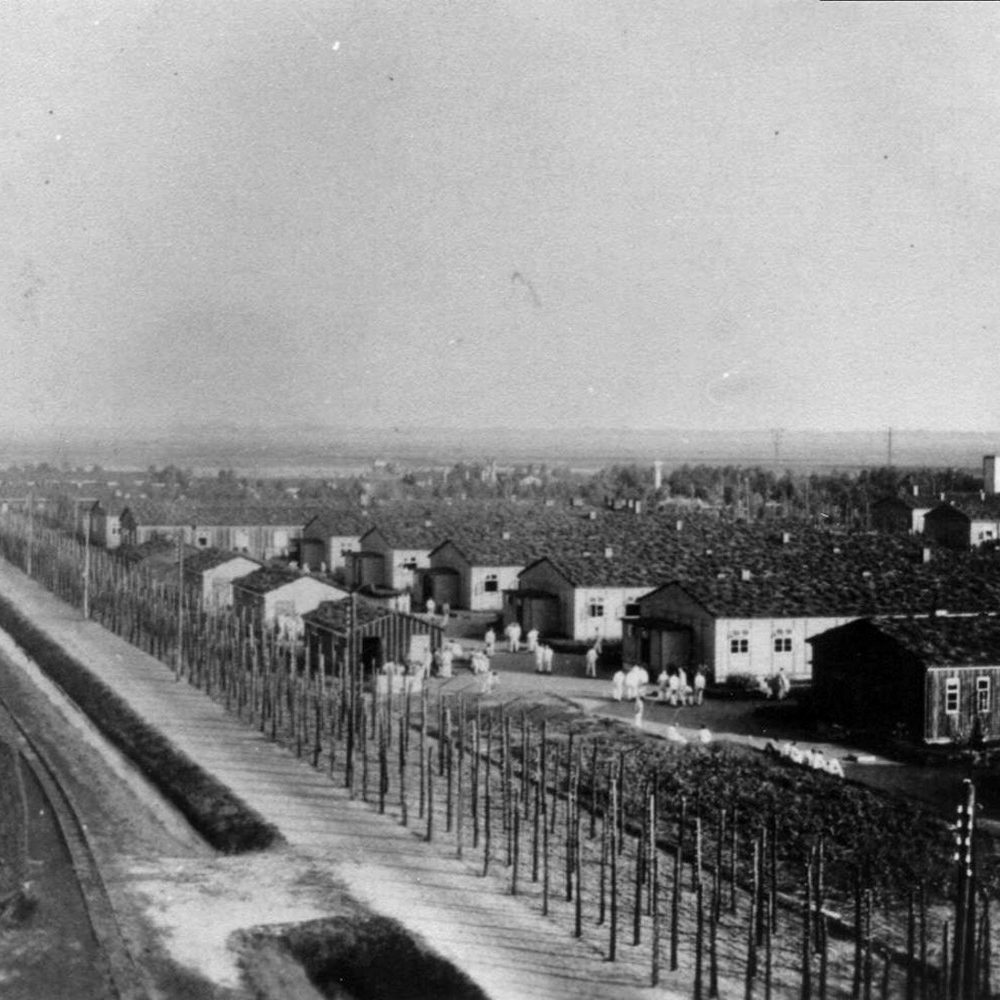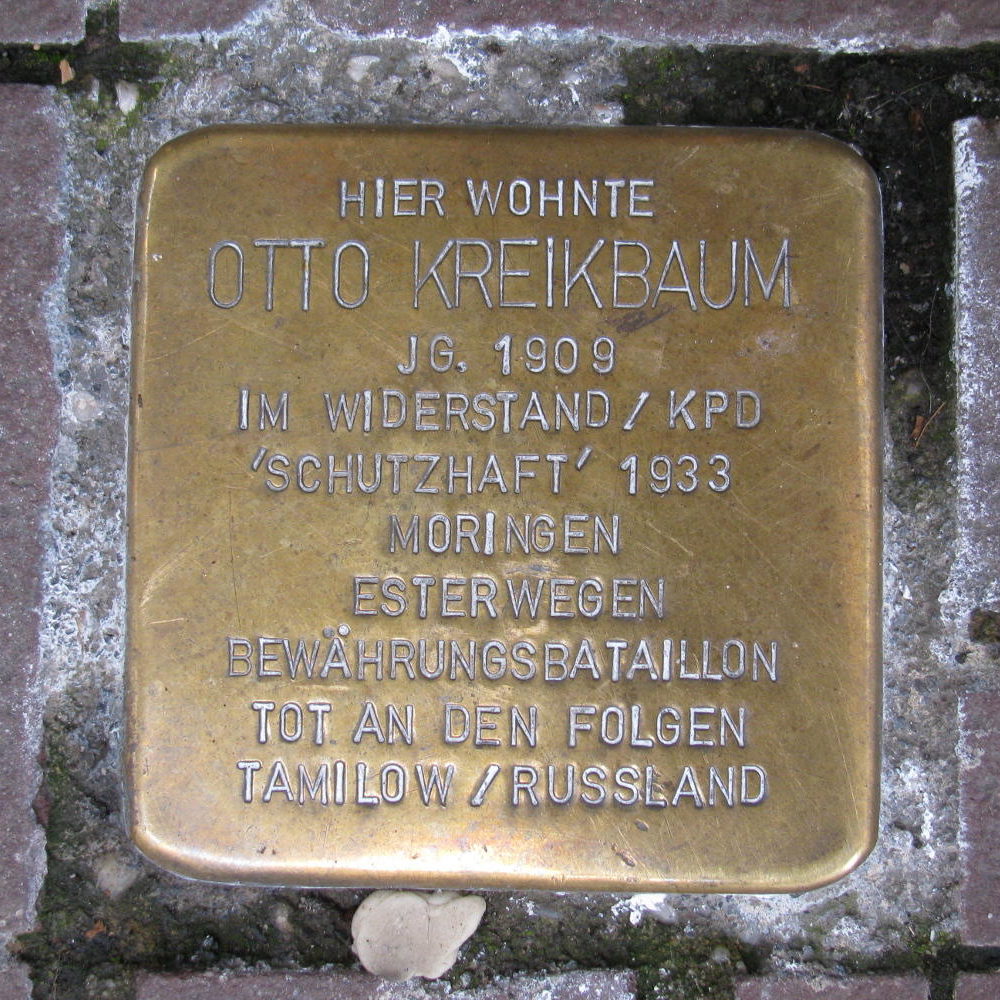Otto Kreikbaum and his wife become involved in the Communist Party of Germany [Kommunistische Partei Deutschlands, abbreviated to KPD] and its sub-organisations early on. As a result, he ends up as an inmate in one of the first Nazi concentration camps, and then in one of the notorious “Moor camps”. During the Second World War, Otto Kreikbaum is meant to rehabilitate himself politically by fighting in a “Penal battalion”. The former communist activist dies as a prisoner of war in a Soviet POW camp.
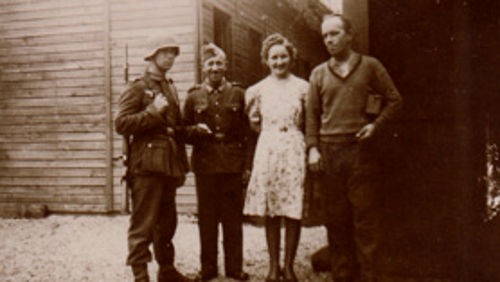
Organised as communist
Otto Kreikbaum is born in Hanover in 1919 and becomes a locksmith by trade. He and his wife get to know each other through their political work together within the KPD. In 1931, he and Luise (“Lieschen”) Lüpke marry, and by 1941 they have five children together. Luise had joined the youth organisation of the KPD at the age of 18; Otto was also an active member of the KPD, especially in successor organisations to the Alliance of Red Front-Fighters, which was founded in 1924 but banned in 1929.
Concentration camps
Shortly after the Nazis come to power, he is taken into “protective custody” and taken as a political prisoner to the Moringen concentration camp near Göttingen, which was set up in April 1933. In October 1933, Moringen is converted into a women’s concentration camp so the male prisoners are transferred to the concentration camps in Emsland and Oranienburg near Berlin. Otto Kreikbaum is sent to Esterwegen concentration camp, one of the notorious “Moor camps”. He is later released from the concentration camp back to Hanover and placed under police surveillance. In 1939, a “welfare” institution takes away the family’s four children on the grounds of alleged neglect. They are placed with foster parents in Austria, which is “annexed” into the German Reich.
Sent to the front on “probation”
At the outbreak of the Second World War, Otto Kreikbaum is not drafted into the Wehrmacht [armed forces] because a German with his political past is considered “unworthy of military service” in the “Third Reich”. The rationale for this is that according to the world view of the National Socialists, being a soldier signifies an honour of which one must prove oneself worthy: “Military service is honourable service in the name of the German people”. The role model is the warrior Teuton who happily took up the sword for his own tribe and territory, and drove the gutless “coward” into the moor. According to this reactionary image of men, conscription becomes the decisive criterion by which to demonstrate honour and loyalty to the German people [das Volk].
From April 1941, soldiers who have been imprisoned are used to form “probation troops”. Their sentences are to be suspended for the duration of the war. In contrast, those who had previously been excluded from the Wehrmacht as “unworthy of military service” – among them many former political concentration camp prisoners – serve in the 999th Light Afrika Division, which is established in 1942. They are used as “suicide mission squads” along particularly dangerous stretches of the front. The forced recruits, especially active opponents of the Nazis, often continue their resistance work in the Wehrmacht. They are soon withdrawn from the Eastern Front after many of them defect to the Red Army. In Greece and Yugoslavia, a very active fight of resistance develops from the ranks of those in the 999th Division. Due to this lack of reliability, the “Penal battalion” was disbanded in September 1944.
Death and commemoration
Otto Kreikbaum is forced to fight on the Eastern Front in one of these “probation troops”. He ends up as a prisoner of war and dies in unknown circumstances in Tamilow, Russia, after the end of the war. After the war, his wife, “Lieschen” Kreikbaum, continues to be active in Hanover as a left-winger within the KPD and later in the DKP [Deutsche Kommunistische Partei, i.e. the German Communist Party]. She dies in December 1980. On 30 September 2016, a Stolperstein is laid for Otto Kreikbaum in front of the family’s former home at Kramerstrasse 4. The memorial service is also attended by descendants of the couple, including their daughter Jutta and great-grandson Levi, who gives a speech. Afterwards, the song “Die Moorsoldaten”, [“The Peat Bog Soldiers” composed by political prisoners in Börgermoor concentration camp – it has been translated into several languages and became a well-known protest anthem] resounds through the air.
Weitere Informationen online
Wikipedia entry List of Nazi concentration camps
Wikipedia entry Penal battalion
Wikipedia entry 999th Light Afrika Division 999
ZeitZentrum Zivilcourage Stolpersteine in Hanover [in German]
ZeitZentrum Zivilcourage Information sheet on Otto Kreikbaum [in German] PDF
Further reading: Click here
Texts and images: Michael Pechel

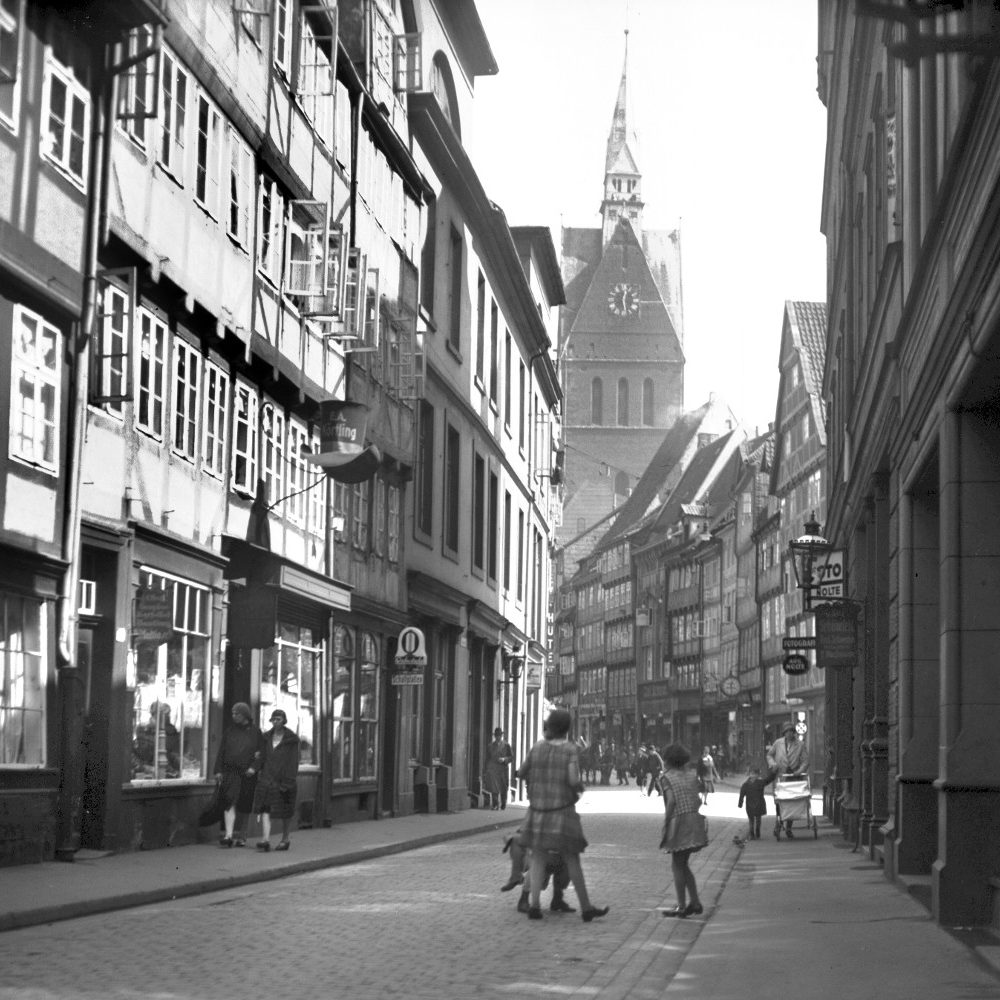
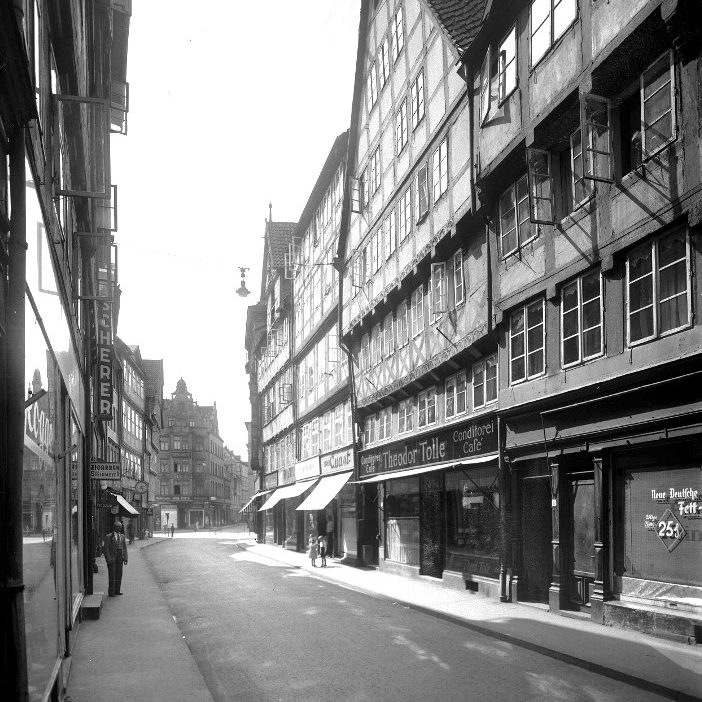
![Hanover: Altstadt [Old Town] between Marktkirche, palace and Ballhof. Street map of Hanover, scale 1:1000. Hanover city planning office, in the 1930s](https://zukunft-heisst-erinnern.de/wp-content/uploads/2020/07/schloss_markt.jpg)
